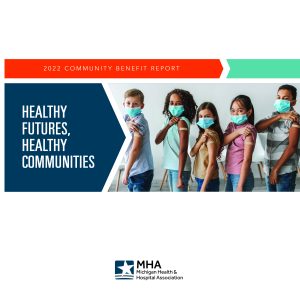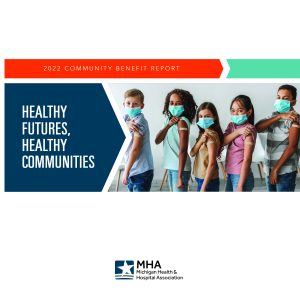Since 1990, the MHA has honored member healthcare organizations working to enrich the overall welfare of their local communities through the Ludwig Community Benefit Award. This year, the MHA is excited to showcase all award nominees, highlighting the exceptional and creative work being accomplished by Michigan’s hospitals.
McLaren Oakland, part of McLaren Health Care and a 2023 nominee, is identifying and assisting victims of Intimate Partner Violence (IPV) through enhanced screenings in the healthcare setting.
What started as an idea from Dr. Jordan Murray, chief resident of the McLaren Oakland Radiology Residency Program, has now become a regular practice at the Pontiac-based McLaren hospital. During mammogram appointments – one of the few instances where female patients are alone and away from their partner – healthcare providers are able to ask important questions about home safety and intervene as needed.
Those who experience IPV often suffer from battery, sexual violence, stalking and/or psychological harm at the hands of a former or current partner/spouse. According to the Centers of Disease Control and Prevention, one in four women report experiencing some form of IPV each year. Research also shows that Black women experience IPV at disproportionately higher rates.
McLaren Oakland hospital staff are focused on offering potential victims immediate help in a safe, private environment.
The initiative continues to grow as a collaborative effort between the Radiology Residency Program, the ancillary staff at McLaren Oakland (including mammography technicians) and members of HAVEN. Together, their teams are working to expand IPV screenings to other McLaren Health Care locations and create a blueprint for other hospital and healthcare practices to use.
“This project has added another facet to my job and gives me a sense of purpose, knowing that I can change women’s lives for the better,” said Megan Carrillo, DO, a resident at McLaren Oakland. “Dr. Murray’s passion to help others – with the understanding that the role of a physician is not only to treat, but to educate and keep community members safe – has inspired others to continue what he started.”
Members with questions about the program or the Ludwig Community Benefit Award should contact Erica Leyko at the MHA.




